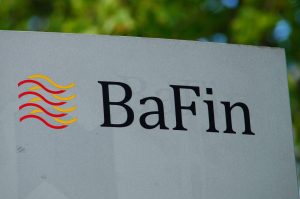Finoa Integrates Centrifuge’s Anemoy Tokenized T-Bill Fund into Custodial Wallet System

Finoa, a crypto custodian with a license from German regulator BaFin, has integrated Centrifuge’s Anemoy tokenized T-Bill fund into its custodial wallet system.
The firm is expanding its services to offer clients access to tokenized, real-world assets (RWA) through Centrifuge, a pioneering company in bringing non-crypto assets to blockchains.
Finoa to Offer Tokenized Real World Asset Fund from Centrifuge
We are thrilled to announce that Finoa is partnering with @centrifuge to custody its customers' real-world asset investments, starting with @anemoycapital's Liquid Treasury Fund.
Read the full press release below 👇https://t.co/6DyftCCy0b
— Finoa (@Finoa_io) February 28, 2024
The first RWA token to be offered by Finoa is derived from one of Centrifuge’s Anemoy funds, which are actively managed pools of short-term U.S. Treasury bills regulated in the British Virgin Islands.
This token will be available to Finoa’s institutional customers, leveraging the FinoaConnect wallet system.
Unlike many tokenization efforts originating from traditional finance, Centrifuge’s approach aims to cater to large DeFi investors, decentralized autonomous organization (DAO) treasuries, stablecoin protocols, and similar entities.
This offering is distinct from traditional tokenization efforts in the traditional finance (TradFi) sector, as it embraces blockchain-based tokens’ unique capabilities and logic.
Martin Quensel, the co-founder of Centrifuge, emphasizes that understanding tokens in traditional finance as mere database records is disconnected from the more dynamic and executable nature of tokens in DeFi. He said,
“I would argue traditional finance’s message for the future that trillions of dollars will be tokenized is completely disconnected from firms that are innovating with RWAs.”
Henrik Gebbing, the co-founder of Finoa, emphasized the potential for clients to earn a yield on idle assets, such as fiat cash and stablecoins, by integrating tokenized RWA like the Anemoy fund into FinoaConnect.
This integration provides a seamless user experience for deploying stablecoins in the tokenized T-Bill fund, offering attractive investment opportunities to institutional crypto investors.
“We work with crypto foundations and large crypto investors, and a lot of them sit on idle stablecoins with no interest being paid.”
The tokenization of real-world assets represents a growing trend in the blockchain space, driven by the desire to streamline financial processes and unlock new investment opportunities.
According to a report by digital asset management firm 21.co, the market for tokenized assets could grow to $10 trillion by the end of the decade.
Finoa Expands Offerings and Receives Regulatory Approvals Amid Growing Interest in Tokenized Assets
The tokenization of illiquid assets is expected to be a significant market opportunity, with projections suggesting it could grow to $16 trillion by 2030, according to a report by Boston Consulting Group.
Institutional investors have already shown considerable interest in tokenized assets, with 91% expressing interest, as indicated by a survey conducted by BNY Mellon.
In addition to expanding its offerings, Finoa has received three license approvals from Germany’s financial regulator, BaFin, indicating regulatory approval and compliance with industry standards.
The company has also closed a strategic venture round led by new investor Middlegame Ventures, along with participation from existing investors.
In September 2023, Centrifuge announced the launch of real-world asset liquidity pool testnets on Arbitrum and Coinbase’s Base, with discussions underway for integration with other layer-1 and layer-2 networks.
The goal is to provide borrowers with liquidity access without relying extensively on intermediaries, allowing asset originators to tokenize their assets and use them as collateral in Centrifuge’s liquidity pools.
Finoa recently raised $15 million in a strategic funding round co-led by Maven 11 Capital and Balderton Capital. Other investors included Blue Bay Ventures, Signature Ventures, Coparion, and Venture Stars.
This funding round, initiated in June last year and closed in December, comes after Finoa returned to profitability in the fourth quarter of 2023, following losses in the preceding years due to market conditions and crypto collapses.


